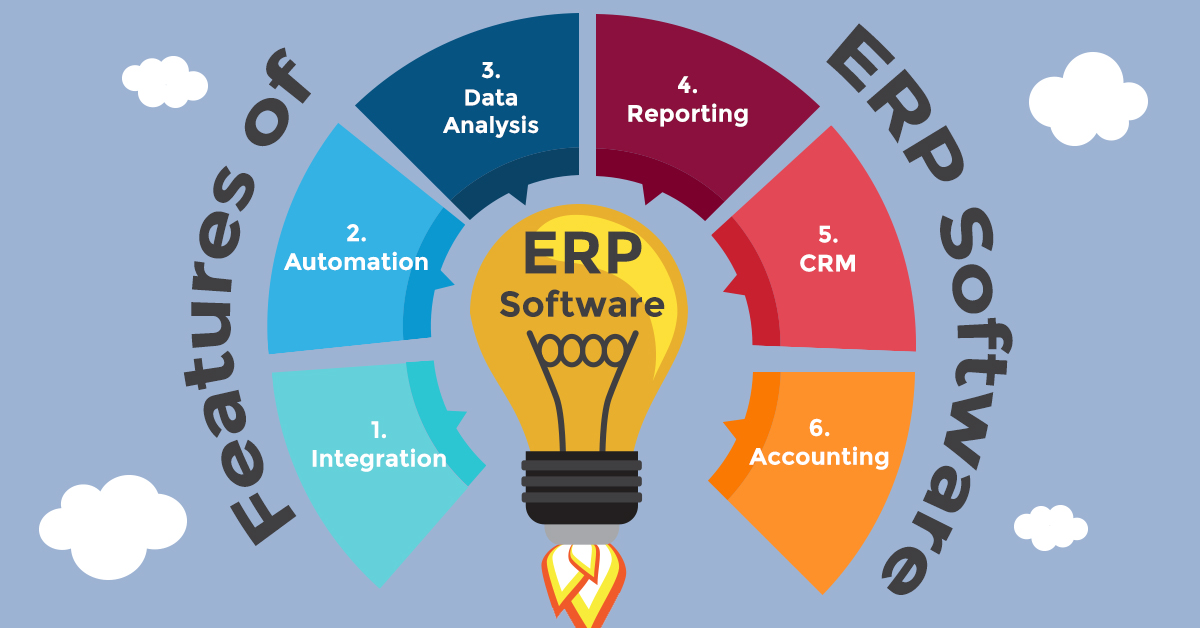Key Features of ERP

Enterprise Resource Planning (ERP) systems typically offer a wide range of features and functionalities designed to streamline and integrate various business processes across an organization. Here are some key features commonly found in ERP systems:
Integrated Modules: ERP systems typically consist of integrated modules that cover different functional areas of the organization, such as finance, accounting, human resources, supply chain management, manufacturing, sales, and customer relationship management (CRM). These modules allow for seamless data sharing and process automation across departments.
Centralized Database: ERP systems feature a centralized database that serves as a single source of truth for all organizational data. This centralized data repository ensures data consistency, accuracy, and integrity across the organization, reducing data redundancy and improving data visibility.
Real-time Data Access: ERP systems provide real-time access to up-to-date information and data analytics from various parts of the organization. This real-time visibility enables informed decision-making, improves operational efficiency, and enhances responsiveness to changing business conditions.
Customizable Workflows: ERP systems allow organizations to customize workflows and processes to meet their specific business requirements and industry needs. Customizable workflows enable organizations to streamline operations, automate routine tasks, and enforce standardized processes.
Business Intelligence (BI) and Analytics: Many ERP systems include built-in business intelligence (BI) and analytics capabilities that enable organizations to generate reports, dashboards, and visualizations to analyze data, track performance, and identify trends. BI tools provide insights into key metrics, KPIs, and performance indicators, empowering organizations to make data-driven decisions.
Supply Chain Management (SCM): ERP systems feature supply chain management modules that help organizations optimize their supply chain processes, including procurement, inventory management, demand forecasting, and logistics. SCM modules facilitate collaboration with suppliers, reduce lead times, and improve inventory visibility and control.
Customer Relationship Management (CRM): ERP systems often include CRM modules that help organizations manage customer relationships, sales pipelines, marketing campaigns, and customer service interactions. CRM modules enable organizations to track customer interactions, segment customer data, and personalize marketing efforts to improve customer satisfaction and loyalty.
Financial Management: ERP systems include financial management modules that automate financial processes such as accounting, budgeting, financial reporting, and compliance. Financial management modules help organizations streamline financial operations, improve financial visibility, and ensure regulatory compliance.
Human Resource Management (HRM): ERP systems feature human resource management modules that support various HR functions, including recruitment, onboarding, payroll processing, benefits administration, performance management, and employee training and development. HRM modules help organizations manage their workforce more efficiently and effectively.
Mobility and Cloud Support: Many modern ERP systems offer mobile applications and cloud-based deployment options that enable employees to access ERP functionalities from anywhere, at any time, using any device. Mobility and cloud support increase flexibility, collaboration, and productivity across the organization.
These are just some of the key features commonly found in ERP systems. The specific features and functionalities of an ERP system may vary depending on the vendor, industry, and organizational requirements.
Thank you,